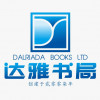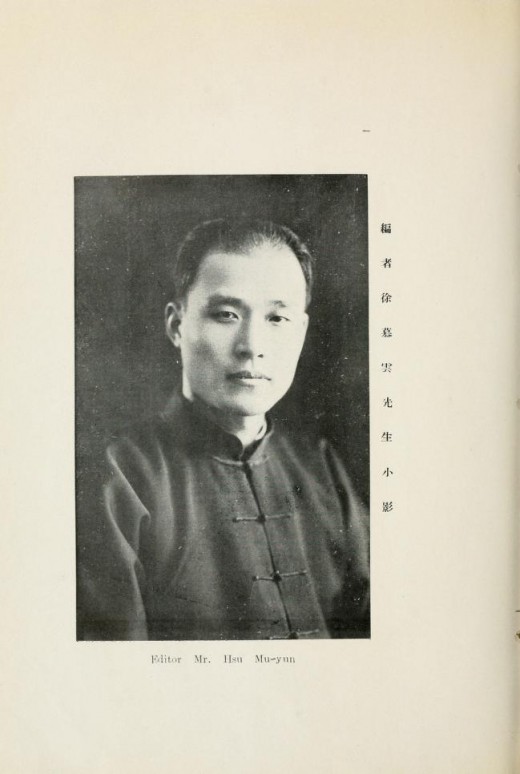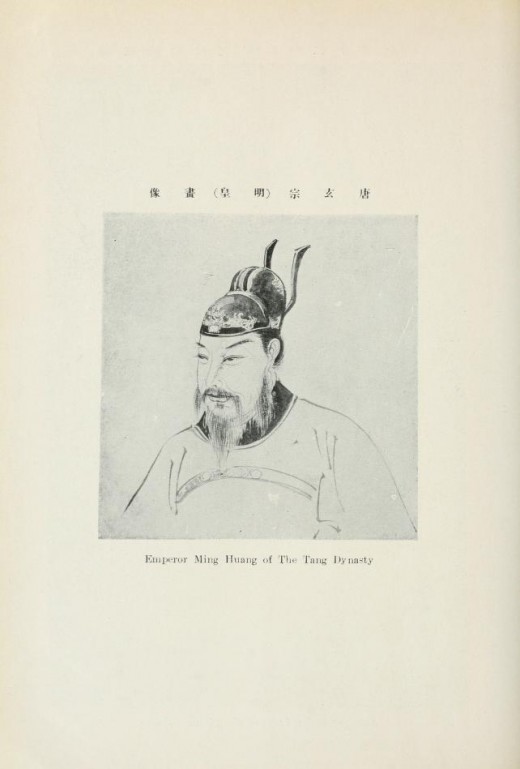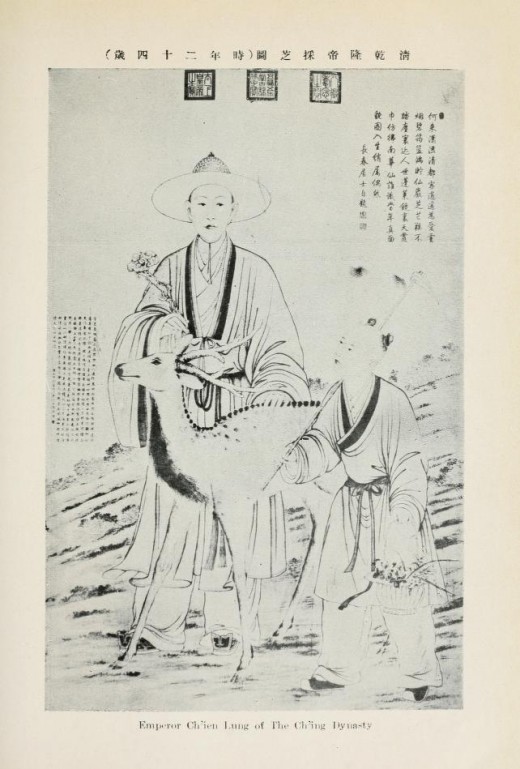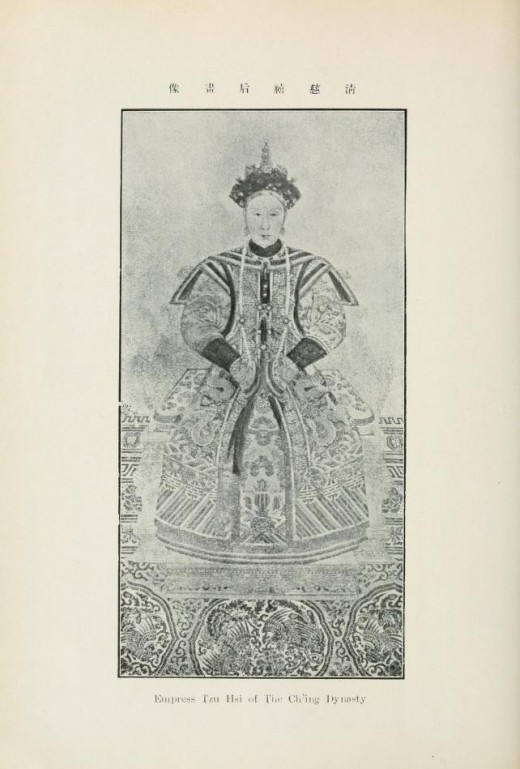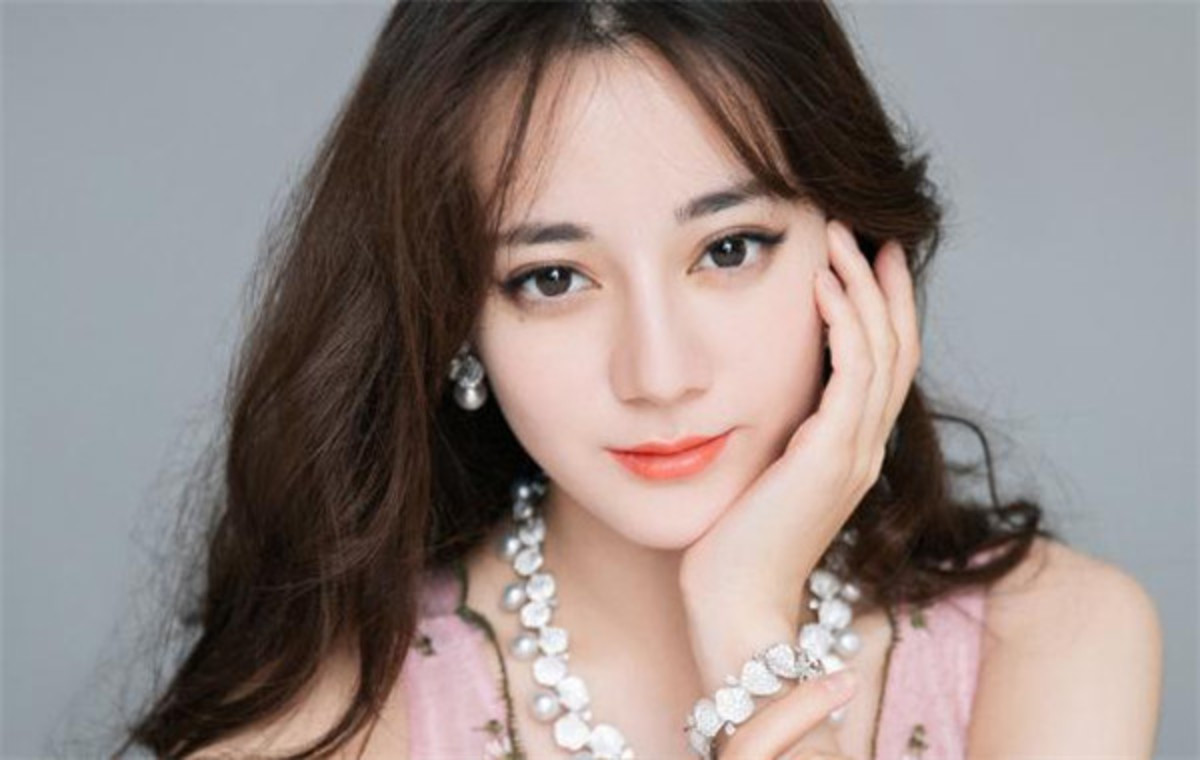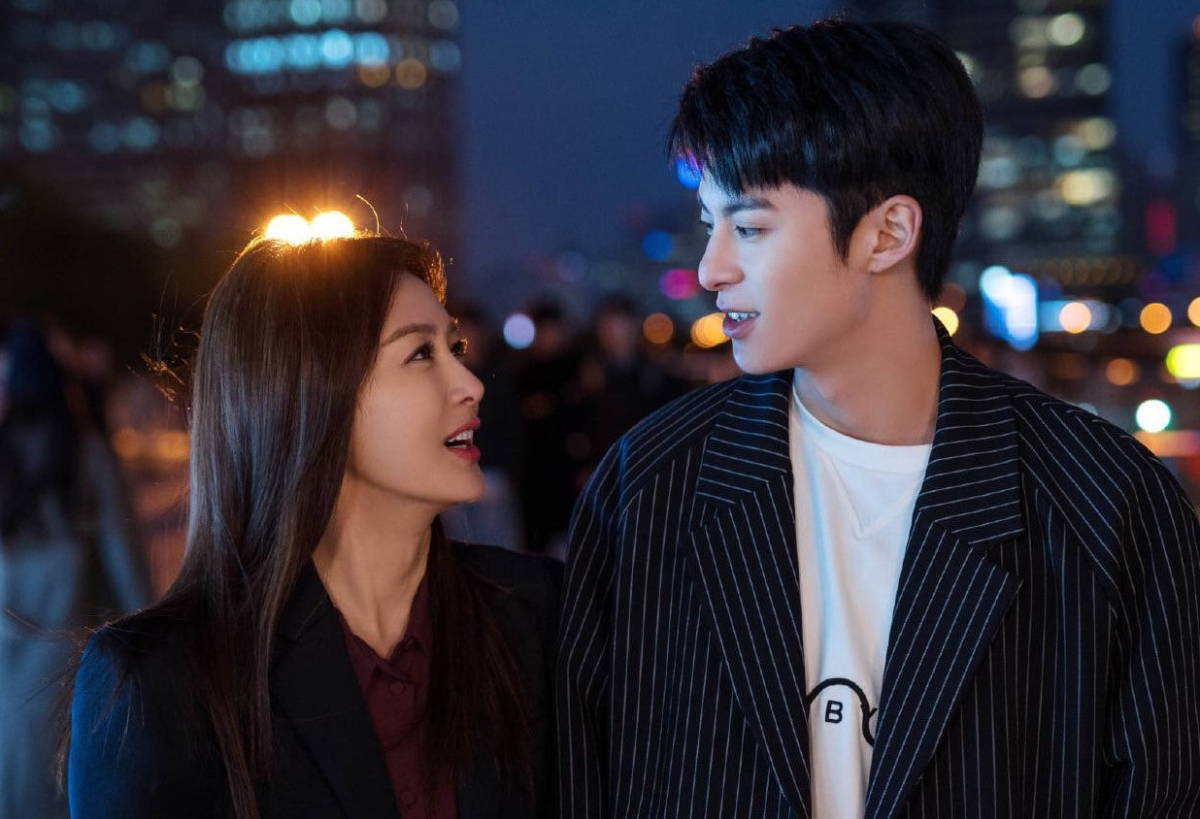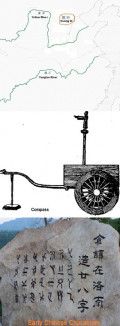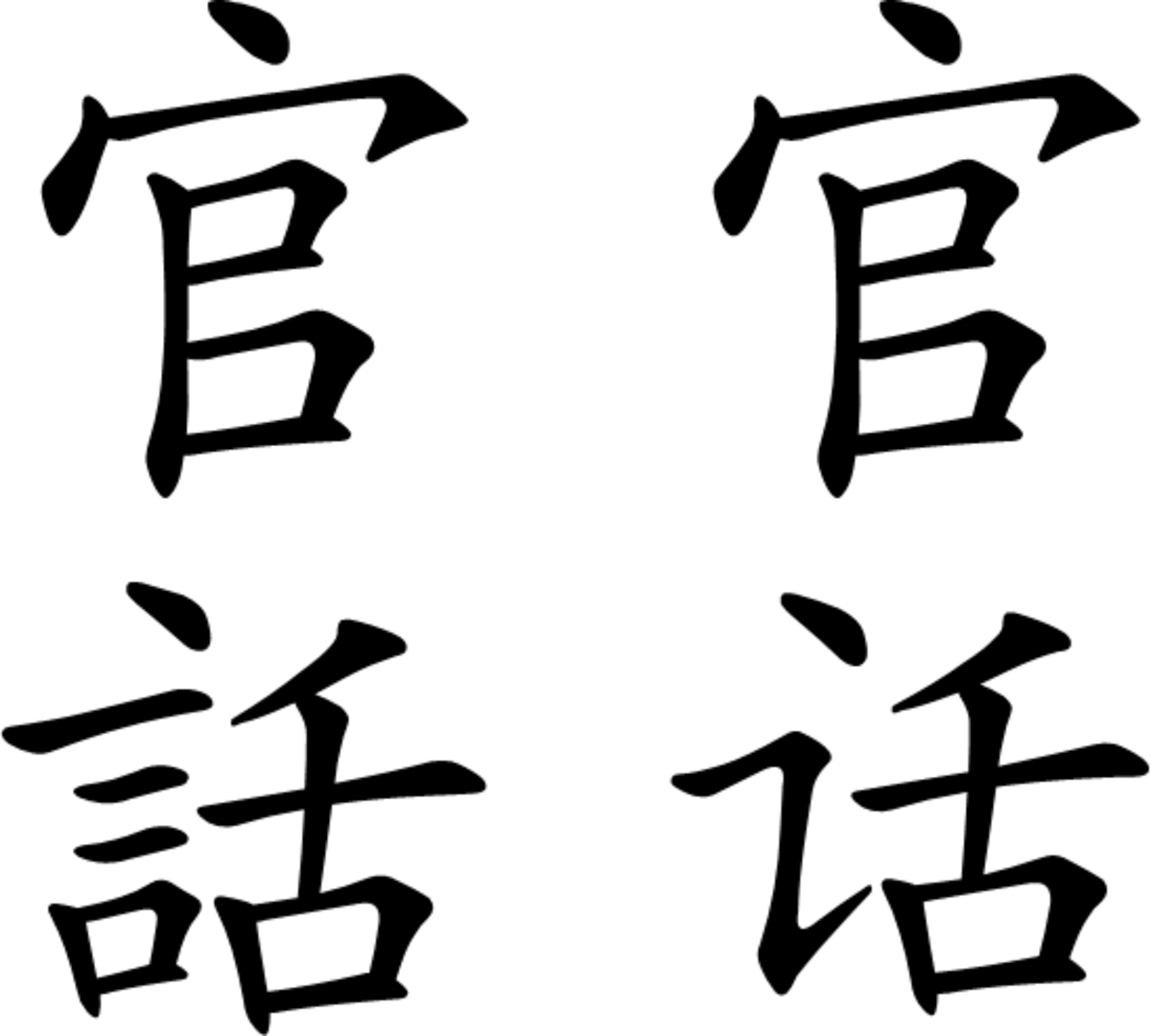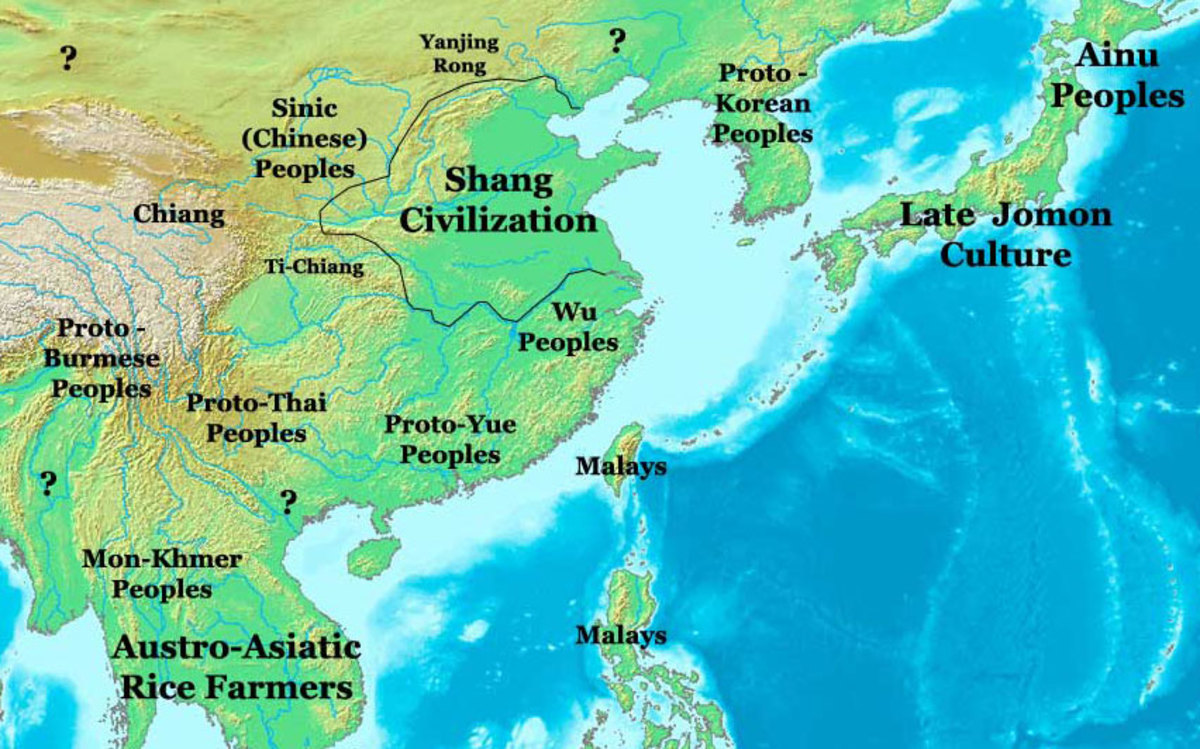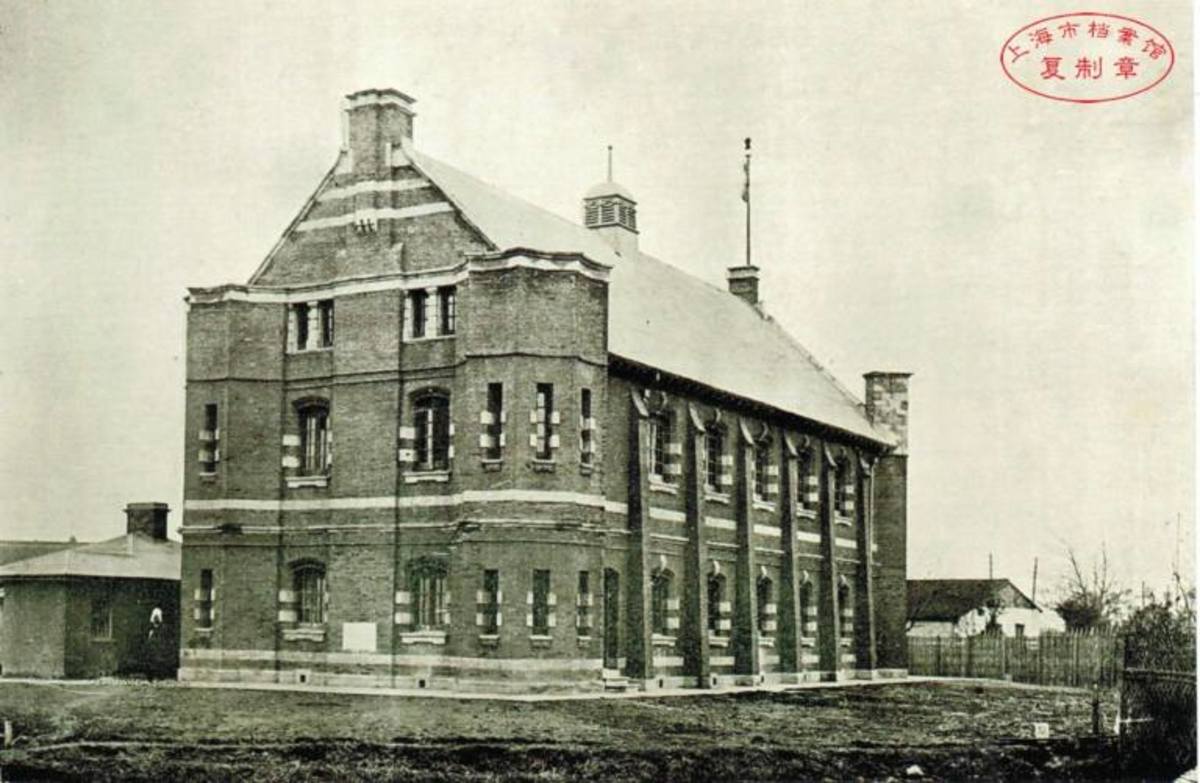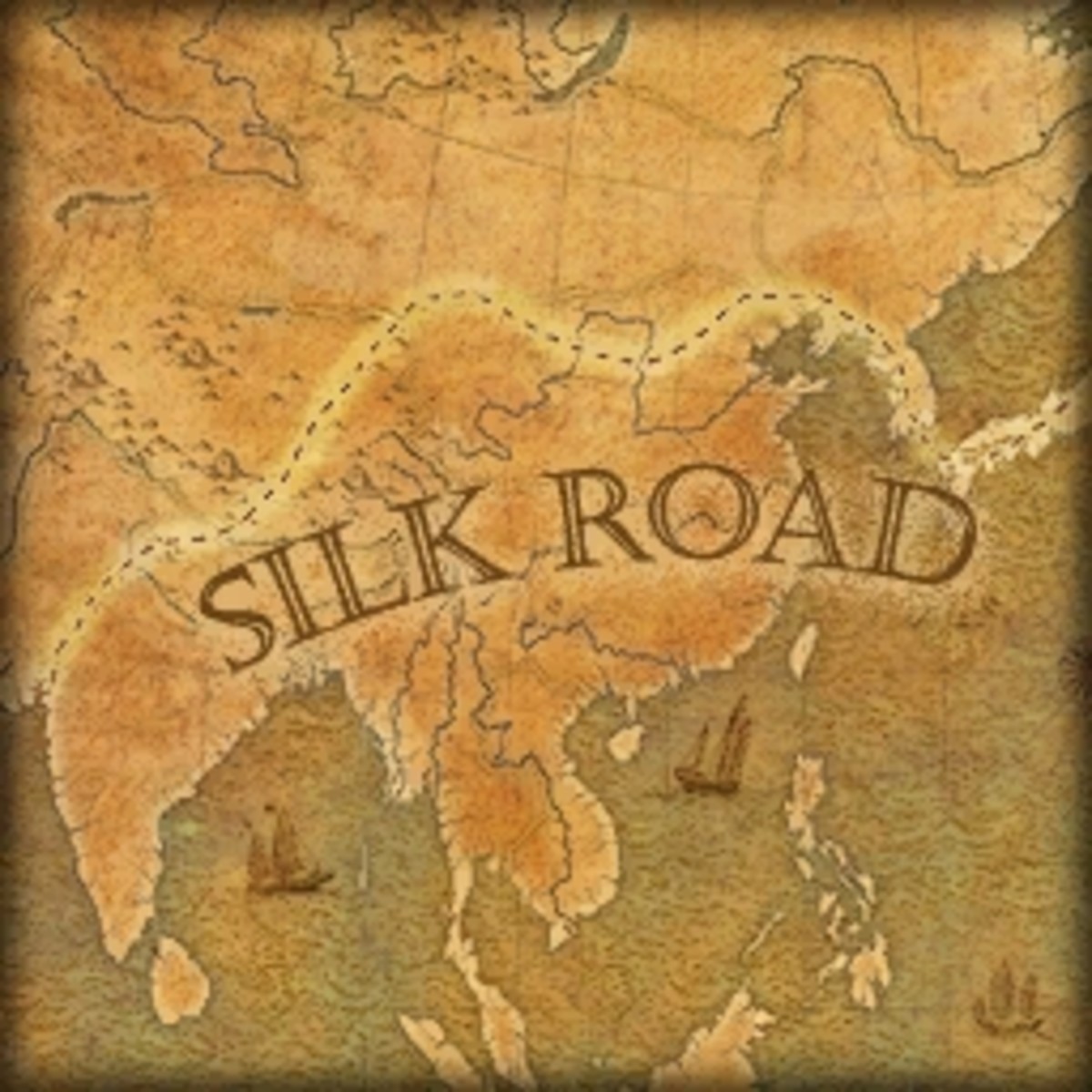- HubPages»
- Education and Science»
- History & Archaeology»
- History of Asia
A BRIEF DRAMATIC HISTORY OF CHINA




A BRIEF DRAMATIC HISTORY OF CHINA
(606 B.C.— A.D. 1933)
By Hsu Mu-yan
PREFACE
The editor of this book Mr. Hsu Mu-yun has for many years made a study of the dramatical histories and literatures that he might write a systematical book on Chinese drama as it has developed over the centuries. He has endeavored to incorporate in his book many pictures of famous actors and actresses and ether studies of dramatical presentations. It is indeed unfortunate that detailed pictures of some of the ancient dramatists are unobtainable but from ancient prints and from the imageries given by their sons and grandsons, in many cases, it has been able to picture the old theatrical characters. In the following pages you will see more than 200 pictures cf actors who have gained prominence during the list hundred years. Besides these, also playbacks of a hundred years ago (which were copied by the old actors of the curt), the painted faces of the loud-voiced roles, famous actors writings and drawings, theatrical clothes of male and female roles, poems of the first, second and third of the Han Lin of Ch'ing dynasty and those of the ministers of to-day, etc.
It is very interesting for the reader to pay attention to the different poses of the hands
in each of the photographs also to note the difference between the theatrical clothes of actors of the old days and those of to day.
P. W. Derby
Shanghai, January 1938
DRAMATIC HISTORY OF CHINA
Drama and dance were known in China some three thousand years ago. It is indeed strange and unfortunate that no man ever before thought of writing a dramatical book systematically.
Seven years ago (1926) I wrote my first book on Chinese dramas entitled "The Lie Yuan Yin Shih" — in other words — "The Pear Garden," which was then the abode of actors in the T'ang Dynasty (618- 959) . This book contained several interesting illustrations showing the ''Pear Garden" in all its beauty. The material which I then had in my possession was somewhat limited and therefore, the dramatical history of China with which this book dealt was consequently incomplete and to a certain degree imperfect. However, in the interval following the publication of this book, I applied myself diligently to the task of improving and enlarging my little knowledge with a view to bring out a thoroughly revised and better edition. In my quest, I have gone through numerous rare old volumes and have succeeded in unearthing a great many valuable records kept of the Chinese dramatical histories in the ancient time (606 B. C ) besides obtaining a considerable number of precious pictures of the departed celebrities.
With the approach of the great exhibition to re held in America at Chicago early this year, from June 1st to November 1st, 1933, I hasten to translate the most important parts of my book into the English language so as to give those foreigners who are interested in the dramatic history of China a comprehensive idea of Chinese drama and the part it played in the history of its country. To this end I would rather have preferred to translate the whole but as I find this impracticable at this time, I shall have to be content by merely giving a brief explanation of the origin of Chinese drama and its gradual development up to the present day.
In those days when China was literally speaking still in its cradle and the world was still young, it was a general practice among its people when offering sacrifices to their Gods to express their feelings by shouting and dancing with joy and delight and from this, it is said, sprung the beginning of Chinese drama.
In the Chou dynasty (606 B. C.) in the reign of the Emperor Ting Wang, there was one, Chuang Wang of Chu, a king of heroic passion, who was a fond lover of dramas and actors. This Chuang Wang of Chu had a talented and very clever man named Mr. Sun Shu-o, who was a great patriot. The King made him his Prime Minister, At the same time, the King had a very famous actor called Mr. Meng for his Adviser.
Whenever the King was at leisure, the actor Meng was summoned to act before the court. Thus, he became one of the King's great favorites and whenever he perceived that his King acted unwisely he immediately gave him his wise counsel and advise.
The years went by very quickly. The Prime Minister died and his son became a woodcutter in order to make out a livelihood for both himself and his destitute family, for his father left him no land (in those days money was unknown). It so happened that the actor Meng heard about this. He borrowed from the woodcutter his dead father's clothes, dressed himself as the Prime Minister and called on the King. No sooner did he reveal the sad plight of the late Prime Minister's family than the King went to see them and granted them much land. It is apparent how great a help actors were to their kings in those ancient times. It is even said that the idol worshipped by Chinese actors and managers of playhouses is Mr. Meng, to whom reflects the credit of being the first successful actor in Chinese history.
In the Ch'in dynasty (246-207 B. C.) the emperor Shih Hwang who had destroyed six small kingdoms, built a magnificent court which he named O-fang and in which there lived a number of actors to provide entertainment. The Prince Hu Hai was very fond of Ch'in-chang, the name given to drama in Shan-hsi and Shuan-hsi provinces. The actors in both these provinces, it is said, worshipped Hu-hai, for according to their belief, he is their ancestor.
In the Han dynasty (206 B. C - A. D. 24) the Emperor, Kao Chu ordered all the officers of the Court to powder their faces in order to distinguish themselves as the officers of the destroyed Ch'in dynasty. This evidently marked the beginning of the tan class or actor of female roles. The Emperor, Wu Ti was a music lover and also loved the actor Li Yen-nien, whose younger sister, the imperial concubine, was also in favor with the emperor. The celebrated humorist Tung-fan Shuo who was exceptionally well versed in singing and dancing, was the Emperor's favorite minister.
In the latter Han dynasty (A. D. 25- 219) there lived a famous actor by the name of Tu-kuei. He was appointed the musical minister or the Ya-yuen Long by the King.
In the San Kuo or the Three Kingdoms Period (220-264) we have the Strategist of Wu whose name was Chou Yu. He was well versed in music and songs. A proverb in remembrance of the strategist runs as follows: "If there were any errors in a song they should be heard and corrected by the Strategist Chou." Ts'ao Ts'ao, the leader of Wei was also very enthusiastic about actors. He frequently ordered them to sing and dance for him on the T'ung- ch'iao Stage.
In the Chin dynasty and the Six Reigns (265-588) Mr. Chao ya and Mr. Ts'ao Ming-ta were the notable actors. The beginning of the chin or actors of loud-voiced roles with fierce painted faces was set by the young King Lan Lin, who put on a wooden mask to fight, with his enemy in order to cover his handsome face and make the latter afraid of him, so he won constantly. From that time onwards, actors became plentiful and the model of Chinese drama was more complete than it ever was before.
In the Sui Dynasty (589-617) we find the very stylish and talented emperor Yang Ti. He was supported by a number of male actors and sing-song girls in Court and in boats. Among these actors, Mr. Wan Pao-chang and Mr. Wang Chin-yen were by far the best.
The drama and theatricals existing in China, owe their long-continued popularity to the patronage of the enlightened Emperor Ming Huang of the T'ang Dynasty (618- 959). Daring this time, education was very advanced and much better than previously, consequently, drama made swift progress. This Emperor who thoroughly understood music and songs and who was a lover of the stage is said to have founded a vast institution called the Li Yuan Chiao Fang or Imperial Dramatic College, where several hundred boys and girls were trained to play and sing for the amusement and delectation of the Court, under the personal tuition of the sovereign, who designated his pupils as the " Emperor 's Pear Garden Pupils" from the fact that he gave them instruction in the Pear Garden of the Imperial Park at Chang-an, then the Imperial Metropolis, but now the provincial capital of Shuan-hsi, Sianfu. Subsequently actors generally became politely described as the "Young folks of the Pear Garden," a title which they retain to this very day. The most artful of China's four great beauties and the unequalled favorite of the Emperor Ming Huang was called Yang Kuei fei. Both emperor and empress were great promoters of drama The famous actors living at that time were: Mr. Li Kuo nien, Li Peng nien, Li Hao nien, Lei Hai-ching, Chang Yeh hu and one or two others.
Like Ming Huang, the following emperors, Tai Tsung and Hsuan Tsung were also fond of actors. The sons of the ministers were also interested in dramas and placed themselves under the tuition of celebrated actors. Mr. Li Ke chi was the most popular actor about this period. The Emperor Chuang Tsung who reigned in the latter T'ang dynasty had an inclination to play on the stage and in company with the actor Mr. Li Tien Hsia. The prince was also ordered to learn how to sing and dance; and later on he was an adept on the stage.
In the Southern T'ang dynasty, we find another two admirers of actors and dramas, one of them being the King Hou Chu His favorite actor was Mr. Li Chia ming. The other was King Yuan Tsung whose favorite was Mr. Yang Hua fei.
The Sung dynasty (960 1276) saw the beginning of the theatrical troupe. The Emperor T'ai Chu ordered eighty eunuchs to take up the art of singing and dancing in the Court. This troupe was called the Hsiao Shao troupe but was afterwards changed to the Yan Shao troupe.
In the Southern Sung dynasty, there was in existence a troupe called the Ts'in- chin Society. This troupe won great fame and lasted from the beginning to the end cf this dynasty. Shang Tiao Ku Tzu poetical compositions were at this time written by Mr Chao Te ling, among which the Tieh Luan Hua, meaning a butterfly on a flower, was by far the best of bis works. It is a delightful composition and is well-known among the Chinese of to day. Early in the Ch'ing dynasty the famous scholar Mr. Mao Hsi ho expressed his belief that composition was the father of the song. About this time a new sort of drama was introduced which was called Nan Hsi or the Southern drama.
In the Liao and Chin dynasties, actors and troupes multiplied in number. Dramas were then classed under three different names: the Yuan Pen, the Cha Chu and the To Shu. Many men of great wealth bought handsome boys, powdered their faces and taught them to dance and sing in their homes. In the reign of King Chang Tsung, there was a great scholar Mr. Tung. This scholar, Mr. Tung, wrote a wonderful master- piece entitled "The String of the Western Chamber" or the "Hsi Hsiang." Another one of his notable works was a song called T'an Tzu which is a solo with the accompaniment of a guitar.
At the end of the Chin dynasty, the Elegant Music came into being. The Lieh Hsiang Poetical Composition was the father of the Cha Chuin of the Yuan dynasty and was the first of the Elegant Music. In this troupe one actor sang while two others kept him company and danced to the enchanting accompaniment of the reed organ, flute and guitar.
In the Yuan dynasty (1277-1867) was witnessed one of the greatest transformations in the history of Chinese drama This came about because the Emperor of Yuan, being an inhabitant of Mongolia, and like the people there, was interested only in military affairs and as a rule paid little or no attention whatever to literature and other arts. However, when they crossed over to China they soon came to a realization that literature was of much greater consequence there than the mere art of soldiery which they practiced. The Emperor immediately took steps to encourage the writing of books, songs and other branches of the literary art among the few scholars of that time. The majority of their works which is composed of quite a number of masterpieces have been preserved and may even be seen to day. The new type of dramatic songs written by these scholars were known as the Cha Chu or the Northern Song. The form of these new songs varies considerably from that hitherto composed, the songs being more complete, and were sung by rough boisterous voices, typical of the Northerners, and accompanied by weird chanting music from a medley of instruments. Young people, at this time, were very eager and enthusiastic about playing on the stage with actors and were frequently referred to as amateurs.
The Emperor Ch'eng Tsung had great faith in actors and relied upon them for their aid whenever a problem or some other embarrassing matter confronted him. The famous actor Mr. Mo Sha was his particular favorite because he always helped him with affairs pertaining to the Government.
In the middle kingdom of Yuan, drama flourished in the Southern provinces of China and at the end of the same dynasty appeared the Nantiao, also called the Nan-ch'u or the Southern song, which was the father of Ch'uan Chi of the Ming dynasty.
At the beginning of the Yuan dynasty, the Northern song was popular but the end of the same dynasty saw the Southern song take its piece. Mr. Wang Shih-fu, Mr. Ma Tzu yuan the editors of Hsi-hsiang Kee, and Yo-yang Lo, respectively, were the famous editors of the Northern song. The editors of the Southern song namely, Mr. Kao Tsei-ch'eng, editor cf Pi-pa Kee, and Mr. Shih Chun-mei, editor of Yu-kuei Kee.
The only difference be tween the Northern and the Southern Songs is that the former is sung in a hard and powerful manner and by people in the Yellow River district and always sung by a single person, whereas the latter is sung in a soft and weak manner by people in the Yangtsze River d strict and always sung by many persons.
During the Yuan dynasty no more than a hundred famous masterpieces were written. The Wu-tung Rain, which is by far the best of all the other writings, has been translated into English and sold in many parts of Europe and America.
Prior to the establishment of the Yuan dynasty, actors were only permitted to assume one role, i.e. those who took tip singing roles could only sing and those who took up playing roles could only play. But after the end of the Yuan dynasty, one actor could take up three roles, namely, singing, playing and speaking.
In the Ming dynasty (1368-1643) the Emperor T'ai Chu strengthened the foundation capital of the country at Nanking, which to this day is the most important part of the whole of China, as a result of which, the Northern Song became less known for it was seldom sung, whereas, the Southern song became better known. In other words, the Ch'uan Chi was accepted by the people and increased in its popularity while the other, the Cha Chu gradually drifted away.
Mr. Tang Hsien-chu, Mr. Shen Ch'ing- mei and Mr. Yuan Ta-tsen were the editors who wrote Ch'uan Chi, among which, the Mo-tan Ting or the Peony Pavillion, written by Mr. Tang is the best.
Between the reigns of the two Emperors Chia Ching and Lung Ch'ing, there lived two big musicians. One who called himself Mr. Wei Liang-fu, an inhabitant of T'a Ts'ang, Kiangsu province and the other Mr. Liang Pai-lung, an inhabitant of K'un Shan in the same province. As the Southern Song was brought out by these two men, the people changed the name of the later to K'un-chu i.e. the song of K'un Shan and there the new song began to appear.
In the K'un-chu troupe the actors were divided into nine roles or thereabouts. There were male, female, loud voice, joker, medium loud-voice, young man, old man, young girl and medium old man.
Among the group of well known actors at the time were Mr. Tsa Pa-shih, Mr. Wang Chen and Mr. Chou Shih-yu. Mr. Wei Liang-fu's Nan Ch'u Ta Cheng and Ch'u Lu Shih Tsei and Mr. Liang Pai-lung's Wu Yu Ch'un Chiu and Wan Sha Kee are well known masterpieces. In the Ming dynasty there appeared in Kao Yang, Chili province, a song called Kao Chiang. This song was adapted from K'un-chu, the only difference being that the singing is louder and sharper than the latter, K'un-chu. As time went on this new song spread into Yi Yang, Kiang-hsi province.
In the Ch'ing dynasty (1644-1911), the Emperor Shih Chu (1644-1661) ordered some famous actors to play Mr. Yu Hsi- t'ang's "Tuh Li So Yueh Fu" before the Court. At that time the K'un-ch'u was weak and so did not make a great hit, but the Kao Chiang did. The famous actor Mr. Wang Tzu-chia was well favored for he was the best friend of Wu Mei-ts'un. Mr. Yu Hsi-fang, Mr. Ch'ien Mu-ts'a and Mr. Kung Chih-Iu were reputed to be the most brilliant scholars at the beginning of the Ch'ing dynasty. Mr. Wu's Wang Long Cu'u is a recognized masterpiece.
Peace descended over the whole of China when Emperor K'ang Hsi (1662-1722) ascended the throne. He was very fond of drama and ordered actors to play before him, Mr. Hung Fang-szu's "Chang heng Tien Ch'uan Chi" and Mr. K'ung Tung-t'ang's " T'ao Hua Shan Ch'uan Chi." He attended the theatre Kuang H'u Lo very often to see actors play. He wrote a few good couplets which may be seen hanging over the stage. This theatre is to-day occupied by a troupe. At that time the Kao Chiang was still flourishing and the Pi Huang which is the same song as sung to-day was not introduced in Peking. The Peng-tzu was very popular in both the Shan-hsi and Shuan-hsi provinces.
Drama has undergone little or no transformation in the Emperor Yung Tseng's period (1723-1735), for he had not long been in office when he was killed by an expert swords-woman.
The reign of Emperor Ch'ien Lung (1736-1795) was one of prosperity to actors in general. He was fond of drama, particularly that of the Kiangsu and Anhui provinces, that he went down to the Southern provinces, i.e. the districts in the South of the Yangtze River.
In the fifty-fifth year of his reign, the four Training Schools for actors — San-ch'ing, Szu-hsi, Ch'un-t'ai and Ho-ch'un all responded to congratulate him on his birthday in Peking (1790). Most actors were inhabitants of the Anhui Province, therefore the Hui Tiao grew popular during that period. The Emperor ordered the Minister to invite a number of scholars to correct the mistakes of the old and new songs in Yangchow, Kiangsu Province. It took them about four years to finish the task.
In those days, it was very peaceful throughout China, both literature and drama made great headway and the Southern new drama in Hupei province came also to Peking. The moment it was presented at the Court it was admired by the Emperor and by all who were present. Subsequently, the Kao-chiang and K'un-chu was displaced by the new drama which is the father of P'i Huang, or the Chinghsi of to-day. At that time the fiddle was unknown for it had not yet been invented. There were the double flutes or the small bugles, however, to act as accompaniment to the actors' singing. During these sixty years of Emperor Ch'ien Lung's reign, there were four important things in the dramatical history of China.
First, before the Emperor Ch'ien Lung, drama and many other different kinds of songs were spread throughout many districts but they were all gathered together in Peking by him.
Secondly, drama of to-day is very popular in China; this probably came about when the Emperor ordered four training schools for actors to be built in Peking.
Thirdly, before this Emperor began his reign, the dramatical histories and actors' names could not be easily gotten.
Lastly, the very big stage which the Emperor built in the Yuan Ming Garden was completely destroyed by fire in the latter part of 1900. This stage was then the only grand and beautiful one in Peking and was built at a great expense.
In the intervening space of time of the reigns of the Emperors Ch'ien Lung and Chia Ching, the Peng tze was brought into Peking by Mr. Wei Chang-shang, who wan an inhabitant of the Szu chuan Province.
In the reign of the Emperor Chia Ch'ing there were four famous actors whose names were: — Fu Kuan, Lao Kuan, Shou Kuan and Hsi Kuan. These actors lived in the Court ff the Emperor. They were hand- some and their acting and singing were exceptionally good.
The Emperor Tao Kuang (1821-1850) was another lover of drama, particularly the Kao Chiang and K'un Ch'u. However an unfortunate event compelled him to expell all the actors from the Court. It happened that when he was a prince, he was given by his father, the late Emperor, Chia Ching, some very precious fox-skin garments. His father had also given some such garments to Fu Kuan, the actor. Unfortunately, the garments which Fu Kuan had seemed to be far superior in quality and color to those of the prince and the latter became jealous. He attempted to exchange with the actor, but the latter seemed satisfied with what he got and was unwilling to change. The prince never forgot this stubbornness on the part of the actor and when he took his father's place at the throne, he threatened to kill him. Against the counsel and advice of his ministers he thrust Fu Kuan and all his followers out of the Court.
The Li-yuan Society was organized by the actors of the Four Training Schools in the Liang-shih shop without the gate of Ch'ien Men. Not very long after this the Ho ch'un, one of the Four Training Schools, withdrew from the Society.
Exactly a century has passed from the fourteenth year of the reign of the Emperor Tao Kuang to the present year, 1933. During these 100 years, we find that the Emperors Hsien-feng, T'ung-chih and Kuang- shu like the majority of the previous Emperors were fond of actors, more particularly the Empress Tzu-hsi who was mad about drama and indeed no other living or dead person has ever been so zealous about theatrical affairs than she. She was exceedingly fond of playing on the stage of the Court with the eunuch Li Liang-ying.
The Yuan Pen, Cha Chu, Ch'uan Chi, K'un Chu, Kao Chiang, Southern and Northern songs of the ancient times, have been replaced by P'i Huang in this last century or thereabouts.
When I started my Dramatical History of China (1833-1983) I should have first mentioned Mr. Ch'eng Ch'ang-keng as he was the most famous actor and the head of the Training Schools for actors during the letter part of the hundred years. I searched for his image for some twenty years and one day in Peking (1925) I found it to my great delight. Now, it takes the foremost place in this book, together with a brief outline of his history so as to give you a better idea of him.
During the period of the Emperors Tao-kuang, Hsien-feng and T'ung-chih (1821-1874) the famous actors were as follows: Mr. Ch'eng Ch'ang-keng, Mr. Yu San-sheng, Mr. Chang Erh-k'uei, Mr. Wang Chiu-lin, Mr. Lo Tai-tzu, Mr. Mei Ch'iao-ling, Mr. Ho Kuei-shan and Mr. Liu Kan-san, etc.
During the time of the Emperors Kuang-shu and Hsuan-tung (1875-1911) the famous actors were as follows: Mr. Wang Kuei-fen, Mr. T'an Hsin-p'ei, Mr. Sun Chu-hsien, Mr. Wang Yu-fang, Mr. Wang Kuei-kuan, Mr. Shih Hsiao-fu, Mr. Yu tzu-yun, Mr. Huang Yun-fu, Mr. Yu Chu shen?, Mr. Chin Hsiu shan, Mr. Huang Yueh-shan, Mr. Yang Yueh-lo, Mr. Lo Pai- sui, Mr. Hou Chun-shan, Mr. Hsu Yin- t'ang, etc.
In the beginning of the Republic ofChina (1912-1920) the famous actors were: Mr. Yang Hsiao-lou, Mr. Liu Hung-sheng, Ml- Wang Hsiao-nung, Mr. Kung Yun-fu, Mr. Wang Feng-Ching, Mr. Wang Yao- ch'ing, Mr. Yu Shu-yen and Mr. Mei Lan- fang, etc.
At the present time (1933) actors are very numerous but the most notable are Mr. Yang, Mr. Yu and Mr. Mei who -till keep their good fame in playing the leading parts in male and female roles. The other actors, namely, Mr. Cheng Yen-chiu, Mr. Hsun Hui-sheng, Mr. Shang Hsiao yun, Mr. Kao Ch v ing-k'uei, Mr. Ma Lien-liang, Miss Hsueh Yen ch'in, Mr. Chin Shao-shan, Mr. He Shou-ch'en, Mr. Yen Chu-p'eng, Mr. T'an Fu-ying, Mr. Wang Shao-lon, etc., are also famous.
THE FOUR ROLES OF CHINESE ACTORS
(1) The Sheng, or actor of male roles
(2) The Tan, or actor of female roles
(3) The Chin, or actor of loud-voiced roles
(4) The Chou, or actor of joker roles
M.Y. Hsu
Shanghai, March 1933
